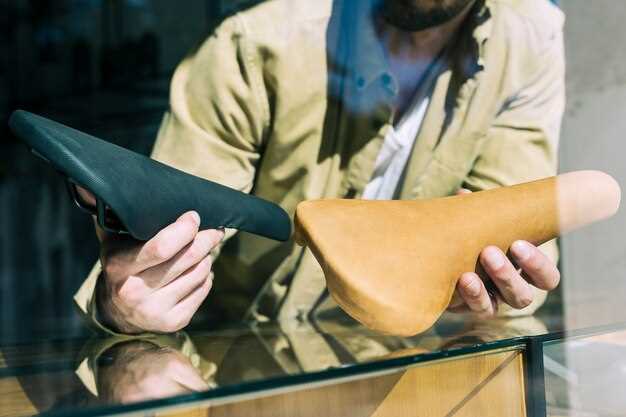
When it comes to selling a vehicle, first impressions matter significantly. The overall appearance of a car plays a crucial role in potential buyers’ perceptions and can greatly influence the resale value. One of the most effective methods to enhance a vehicle’s exterior is through polishing, a process that involves removing imperfections, enhancing shine, and providing a protective layer.
Polishing not only revitalizes the car’s paint but also serves as a preventive measure against environmental damage. Over time, vehicles are subjected to UV rays, road grime, and other factors that can dull their finish. A polished car stands out in the marketplace, attracting more buyers and potentially commanding a higher price. Understanding how polishing affects the resale value of a vehicle can help car owners make informed decisions when it comes to maintenance and preparation for sale.
In this article, we will explore the various ways in which polishing can impact a vehicle’s market value, the techniques that yield the best results, and the significance of maintaining a vehicle’s appearance in a competitive resale environment. By investing time in polishing, car owners can vastly improve the selling prospects and financial return on their vehicles.
Evaluating the Benefits of Professional Polishing for Resale

Professional polishing plays a crucial role in enhancing the appearance of a vehicle, significantly impacting its resale value. When a vehicle undergoes a thorough polish, it removes surface imperfections such as scratches, swirl marks, and oxidation, creating a mirror-like finish that attracts potential buyers.
One of the most notable benefits of professional polishing is the restoration of paint depth and clarity. A well-polished vehicle can evoke a sense of care and attention, leading buyers to perceive it as well-maintained. This perception is essential, as first impressions heavily influence purchasing decisions in the automotive market.
Additionally, polished surfaces are easier to maintain and protect against future damage. A sealed and polished vehicle surfaces repel dirt and grim effectively, simplifying cleaning and reducing wear over time. This practicality not only appeals to buyers but also potentially extends the vehicle’s lifespan, which is a significant selling point.
Moreover, investing in professional polishing can set a vehicle apart in a competitive resale market. When two similar vehicles are available, the one with a superior appearance, bolstered by exceptional polishing, is likely to attract more attention and ultimately command a higher price. This price difference can often outweigh the initial cost of polishing services.
In conclusion, the advantages of professional polishing extend beyond mere aesthetics. It enhances a vehicle’s appearance, bolsters buyer confidence, and can lead to a substantial increase in resale value. For vehicle owners considering selling, investing in professional polishing is a savvy decision that should not be underestimated.
Comparing DIY Polishing vs. Professional Services on Appearance

The appearance of a car plays a crucial role in determining its resale value. When considering the best approach to polishing, many vehicle owners are faced with the choice between DIY methods and professional services. Each option has its advantages and disadvantages that can significantly affect the final look of the car.
DIY polishing allows car owners to take control over the process, offering flexibility in terms of timing and costs. Individuals can select the products they prefer and tailor their polishing technique to suit the specific imperfections of their vehicle’s surface. However, the outcome largely depends on the owner’s skill level and access to quality materials. An inexperienced individual may not achieve the desired appearance, potentially leading to swirl marks or uneven finishes that could diminish the car’s resale value.
On the other hand, professional polishing services bring expertise and advanced techniques that are often beyond the reach of most DIY enthusiasts. Professionals utilize high-quality tools and products designed to deliver a flawless appearance. Their experience allows them to handle various paint types and conditions effectively, ensuring that the car looks its best. This can be a significant advantage when it comes time to sell, as a well-polished vehicle is more attractive to potential buyers and can command a higher resale value.
Ultimately, the decision between DIY polishing and professional services hinges on one’s priorities. If achieving a showroom-quality appearance is essential for maximizing resale value, investing in professional polishing may be the best route. Conversely, if cost savings are a key concern and the owner is willing to spend time learning the polishing process, DIY methods could suffice, though with risk regarding the final appearance.
Understanding Buyer Perceptions: How Shine Influences Offers
The resale value of a car is significantly influenced by its appearance, with shine being a crucial factor in buyer perceptions. When potential buyers evaluate a vehicle, the first visual impression often dictates their interest and willingness to pay a premium. A well-polished exterior not only reflects light but also symbolizes care and maintenance, making the vehicle more attractive to potential buyers.
Shine can invoke feelings of cleanliness and reliability, suggesting that the owner took great pride in the car’s upkeep. A vehicle that gleams has a higher likelihood of receiving positive offers, as buyers often associate a shiny appearance with a well-maintained interior and engine. This perception can lead to an immediate increase in trust, influencing buyers to offer more, as they believe that the car will perform well and have fewer hidden issues.
Moreover, the competitive market for used cars means that first impressions are paramount. In this context, vehicles with dull or faded exteriors may be overlooked, regardless of their mechanical soundness or price. A car that shines stands out in listings, particularly in photographs, increasing the chances of attracting serious buyers.
In conclusion, shine plays a vital role in shaping buyer perceptions and influencing resale offers. Ensuring a car maintains its polished appearance can be a strategic move for sellers aiming to maximize their vehicle’s resale value, as it not only enhances aesthetic appeal but also builds buyer confidence in the car’s overall condition.






